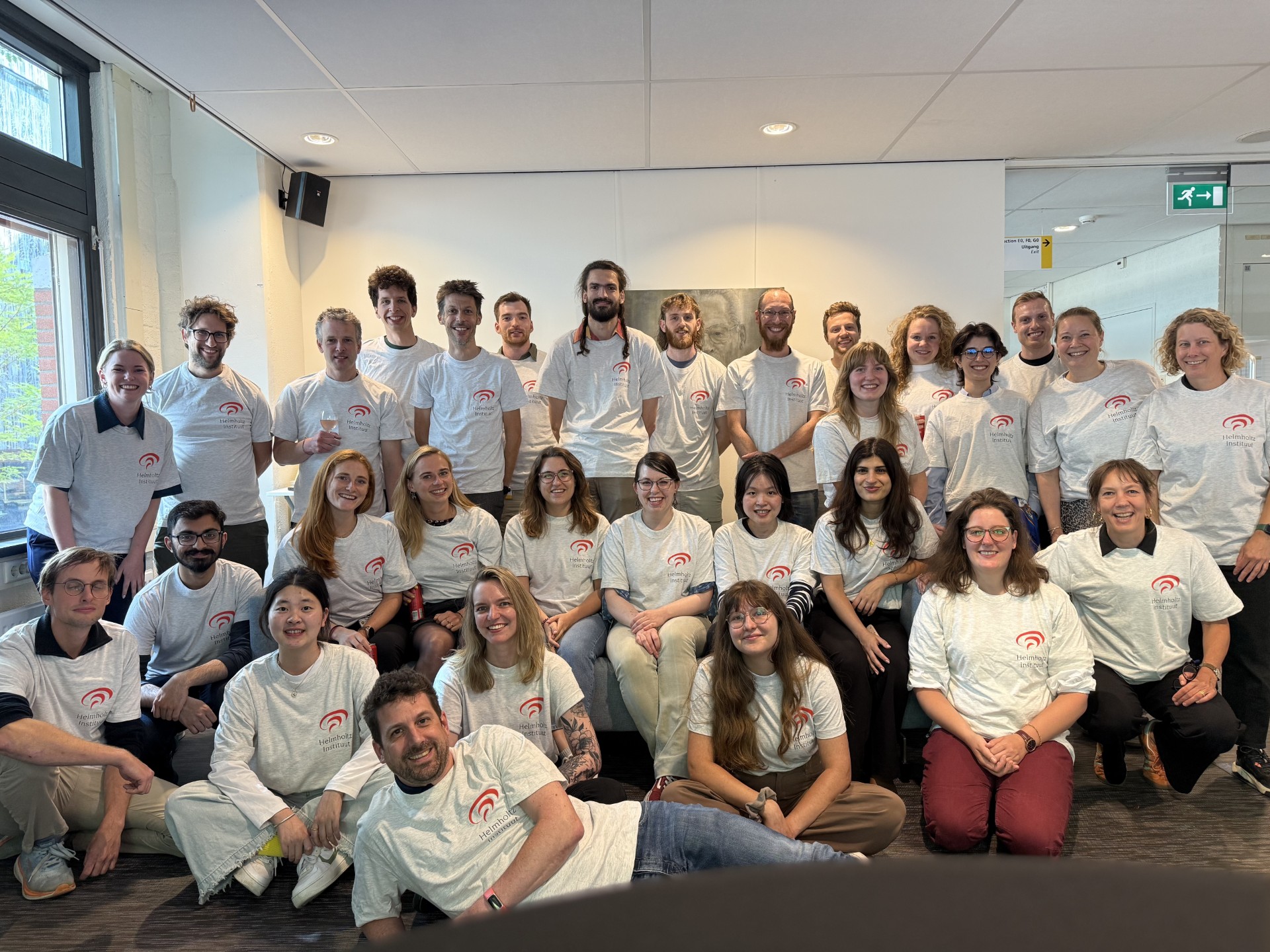Curriculum
Helmholtz PhD Program
The complete program consists of 20 EC. It consists of a general PhD training (1), courses (2,3) and conferences/summer schools (4). Students who have completed a research master program are exempt from 10 EC of the additional coursework. Those who are not exempt may request approval for the inclusion of other training (5). The 6 EC of the general Helmholtz PhD training and 2 EC from a Helmholtz course remain obligatory.
- Obligatory for all PhD students in the program: General Helmholtz PhD Training (6 EC)
This consists of
- An introduction meeting for new PhD students (attendance obligatory in the first year of the PhD project). Format and planning depends on the number of students who start at the same time; in case of very few new PhD students this meeting will at the very least consist of an introductory lunch with members of the HH board and/or PhD council.
- Participation in the bi-annual Helmholtz Retreat.
- Regular attendance of the Helmholtz Lectures, where internationally renowned guest speakers will present their work. PhD students can actively participate as follows:
- Attending ‘PhD student lunches’ with the Helmholtz speakers. All PhD students in the program are required to attend lunches regularly.
- Attending expert meetings with the Helmholtz speakers. For the expert meetings, speakers will suggest some papers to prepare and these are discussed with the speaker prior to the lecture. All PhD students in the program are required to attend expert meetings of at least half of the Helmholtz lecture series each year to fulfil the Helmholtz training program requirements.
- Attendance of and presentation of at least a poster at the bi-annual NVP conference and (in the other year) another meeting to be determined by the HH board (e.g., a meeting within the Psychology department or a meeting co-organized with EPOS).
- Regular attendance of at least one of the regular lab meetings, organized by most of the participant research groups, as confirmed by the PhD students’ advisors.
- Specific courses (min. 2 EC in HH courses)
There are courses on topics that are central to the Helmholtz research agenda that are (bi)annually offered by Helmholtz PI’s. In order to fulfil the requirements, PhD students have to complete at least one Helmholtz Course (see below for a list of Helmholtz courses). Additional courses may be chosen in consultation with the PhD coordinator, e.g. from the EPOS course offerings. Summer schools may count as a course when assignments that are evaluated are part of the summer school, but not if they require only passive attendance (e.g. in a symposium format).
- General courses (min. 4 EC without a research master; otherwise exempt)
These are courses in general professional skills such as written and oral communication, statistics, methods, project management, teaching, clinical training, certificate training, NWO talent classes, et cetera. A selection of such courses can be found on the website of the Graduate school of Social and Behavioural Sciences.
- Conferences and Summer schools (max. 4 EC)
In concurrence with the supervisor, each PhD student is supposed to participate actively in one or more international conferences in a relevant field of science, or participate in summer schools. One conference yields 1 EC, provided own work is presented.
- Other Training
Any course at graduate level or individual training during lab visits / internships can be included in the curriculum provided that it is deemed suitable by the student and supervisor and approved by the PhD program coordinator.
Completion of the training
At the time the thesis is sent to the thesis committee, a list with completed courses is send to the Program Coordinator, who determines whether the training program has been successfully completed. A successfully completed training program will be rewarded with the certificate of the Helmholtz school, or Graduate School Program, to be issued together with the doctor’s degree.
ECTS
The different categories of the curriculum will be rewarded with European Credit Transfer System (ECTS) marks. One ECTS is equivalent with 28 hours of study. The program coordinator establishes the number of ECTS for each individual course.
The number of ECTS per category:
- The obligatory curriculum yields 6 ECTS.
- Study marks for courses that are given within the Helmholtz School are indicated with the individual course descriptions.
- The number of ECTS for courses that are given outside the Helmholtz School will be established by the program coordinator. To ensure a minimal amount of diversity there is a maximum amount of 7.5 ECTS per course.
- Attendance of a Winter- or Summerschool can yield 2 ECTS for a one-week attendance.
- Posters and oral presentations at an international conference are rewarded by 1.5 ECTS per conference (average duration of one week).
Students that have already participated in any course as part of their Masters (or drs., or any other) degree CANNOT use that course again as part of the Helmholtz Curriculum.


